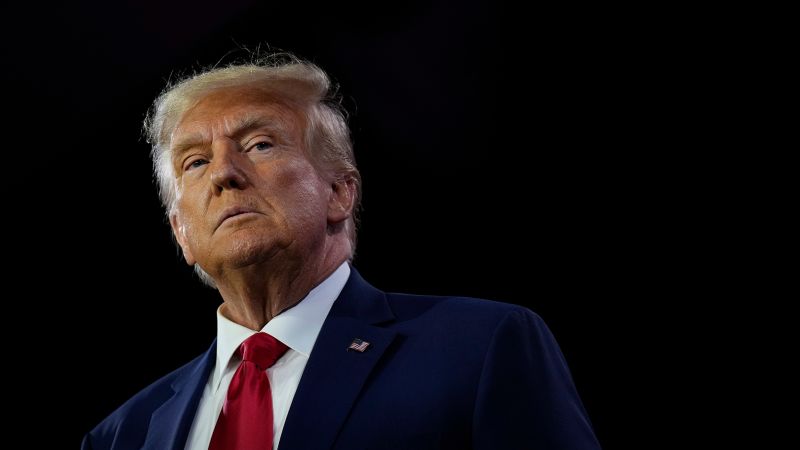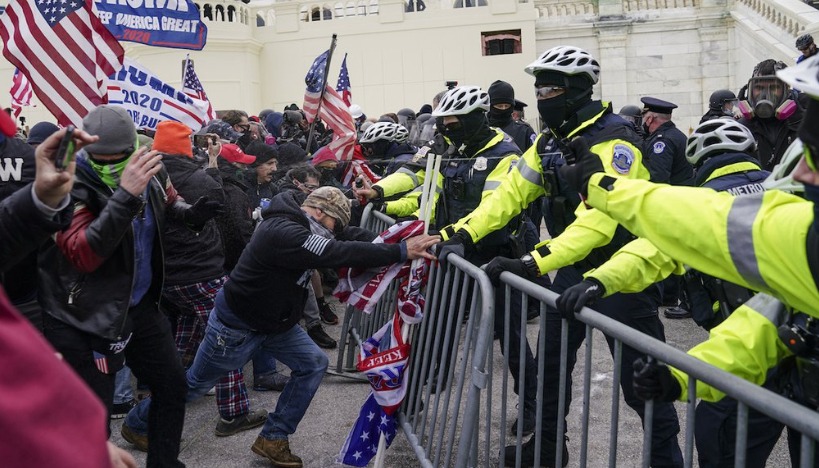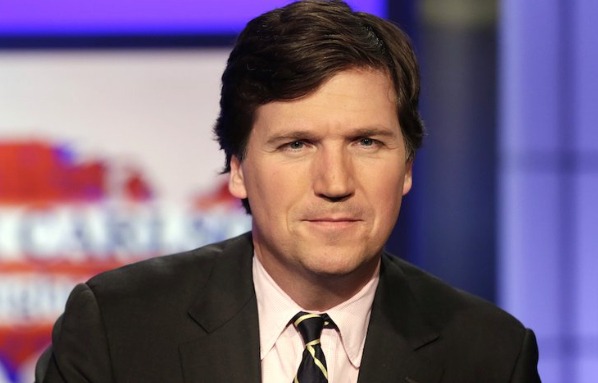Explosive Indictment Reveals Shocking Details of Trump’s Actions to Undermine Election
Powerful Evidence Exposes Trump’s Lies and Attempts to Subvert Democracy
Smith and his prosecutors present a compelling case in the indictment, showcasing Trump’s repeated actions to undermine the election despite being informed by his own advisers that he had lost. This revelation is both stunning and deeply troubling.
Trump’s legal team may argue that he genuinely believed he had won the election, but this defense would require jurors to suspend disbelief to an extraordinary degree. Can they truly buy into the idea that Trump was acting in good faith?
Trump’s lawyer, John Lauro, claims that the indictment is an attempt to interfere in the next presidential election and would have far-reaching consequences for American politics. However, courts have consistently found no evidence of widespread fraud that affected the 2020 result.
The indictment includes shocking evidence, such as a conversation between Co-conspirator 4 and a deputy White House counsel, where the lawyer warns of riots if Trump refuses to leave the White House. The alleged response from Co-conspirator 4 is equally chilling.
Another disturbing episode cited in the indictment involves Trump pressuring Pence to publicly criticize him for refusing to subvert the election certification. This raises concerns about the safety of the vice president and highlights the dangerous consequences of Trump’s refusal to accept defeat.
While the evidence in the indictment is deeply troubling, Republicans immediately dismiss it as partisan, reflecting Trump’s strong hold on the party and the unwavering support of his base.
Florida Gov. Ron DeSantis suggests that Trump cannot receive a fair trial in Washington, implying that the indictment is politically motivated. This raises questions about the impartiality of the justice system.
House Speaker Kevin McCarthy criticizes the indictment as an attack on Trump, emphasizing his frontrunner status for the Republican nomination. This further highlights the partisan divide surrounding Trump’s legal troubles.
Even Wyoming Sen. John Barrasso argues that the indictment reveals a “two-tiered system of justice,” echoing Trump’s claims of the justice system being weaponized against him.
Concerns arise among Republicans that Trump’s legal troubles could alienate critical independent voters, potentially jeopardizing his ability to build an election-winning majority.
The GOP’s reaction to the indictment underscores the deep political divide in America. While Smith’s prosecution aims to hold Trump accountable, it is unlikely to bridge the gap between opposing factions.
By presenting the compelling evidence and reactions surrounding the indictment, this article provides a comprehensive and engaging account of Trump’s actions and their impact on American politics.
The Long-lasting Impact of Trump’s Latest Indictment
In a stunning turn of events, former President Donald Trump has been indicted on charges related to his involvement in the January 6th Capitol insurrection. This latest indictment marks a significant moment in American history, with potential long-lasting consequences for both Trump and the nation as a whole.
The indictment alleges that Trump incited the violent mob that stormed the Capitol, leading to the deaths of five individuals and widespread destruction. It accuses him of using his position of power to spread false claims about the 2020 presidential election, ultimately fueling the anger and frustration that culminated in the attack on the heart of American democracy.
One of the most immediate impacts of this indictment is the potential legal consequences for Trump. If found guilty, he could face severe penalties, including imprisonment. This would be an unprecedented event in American politics, as no former president has ever faced criminal charges of this magnitude. The outcome of the trial will undoubtedly shape the perception of Trump’s presidency and his place in history.
Furthermore, the indictment has far-reaching implications for the Republican Party. Trump remains a highly influential figure within the party, and his indictment could create a deep divide among Republicans. Some may distance themselves from him, fearing the association with a disgraced former president, while others may rally behind him, viewing the charges as politically motivated. This internal struggle could reshape the party’s identity and its future direction.
The impact of Trump’s indictment extends beyond the realm of politics. It has the potential to shape public opinion and trust in the democratic process. The events of January
Unveiling the Enduring Effects of Trump’s Recent Indictment
In a stunning turn of events, former President Donald J. Trump has recently been indicted on charges related to his actions during his time in office. This development has sent shockwaves through the political landscape, leaving many to ponder the enduring effects of this indictment on both Trump’s legacy and the future of American politics.
The indictment, which alleges a range of offenses including obstruction of justice and abuse of power, marks a significant milestone in the ongoing investigations into Trump’s presidency. It represents a rare instance of a former president facing legal consequences for his actions while in office, and as such, it has the potential to reshape the way we view presidential accountability.
One of the most immediate effects of this indictment is the impact it will have on Trump’s legacy. Regardless of the outcome of the legal proceedings, the fact that a former president has been indicted will forever be a stain on his reputation. Trump, who has always prided himself on being a strong and successful leader, will now be forever associated with allegations of criminal behavior. This tarnishing of his legacy may have far-reaching consequences, not only for Trump himself but also for the Republican Party as a whole.
The indictment also raises important questions about the future of American politics. Trump’s presidency was marked by a unique brand of populism and a disregard for traditional norms and institutions. His indictment serves as a reminder that no one, not even the most powerful person in the country, is above the law. This may lead to a renewed focus on accountability and transparency in politics, as well as a reevaluation of the limits of presidential power.
Furthermore, the indictment could have significant implications for the Republican Party. Trump remains a highly influential figure within the party, and his indictment may force Republicans to confront the consequences of their association with him. Some Republicans may distance themselves from Trump in an effort to protect their own political futures, while others may double down on their support for him, viewing the indictment as a politically motivated attack. This divide within the party could have long-lasting effects on its unity and electoral prospects.
In addition to its impact on Trump’s legacy and the Republican Party, the indictment also has broader implications for the American public. It serves as a reminder that no one is above the law and that the actions of those in power have real consequences. This may lead to a renewed sense of civic engagement and a demand for greater accountability from elected officials. It could also serve as a catalyst for further investigations into potential wrongdoing by other politicians, as the precedent set by Trump’s indictment may embolden prosecutors to pursue similar charges in the future.
As the legal proceedings unfold, it is important to remember that the enduring effects of Trump’s indictment are still uncertain. The outcome of the case, as well as the reactions of the American public and the Republican Party, will ultimately shape the legacy of this historic event. However, one thing is clear: the indictment of a former president is a significant moment in American history, one that will undoubtedly have lasting effects on the political landscape for years to come.








